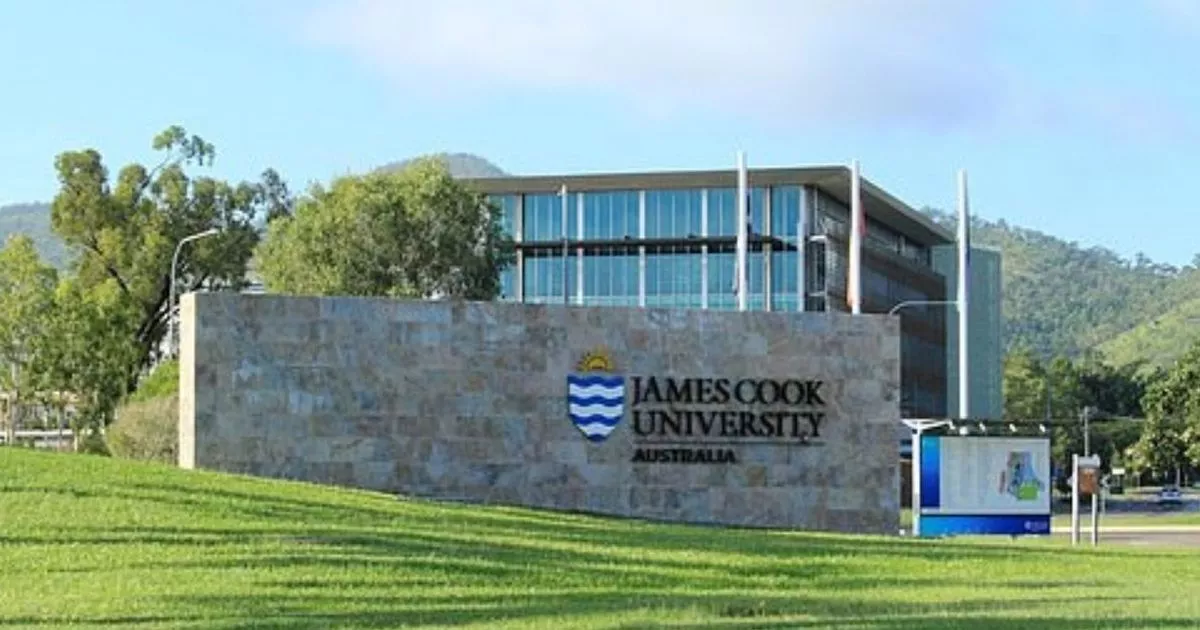If you’ve ever dreamed of diving into the Great Barrier Reef as part of your job or contributing to climate-resilient coral research that helps protect the planet, then listen up: James Cook University (JCU) in Australia is offering a rare marine biology research opportunity that could be your ticket to a paid research experience, international work visa, and a long-term career in marine science.
This isn’t your average internship. It’s a fully supported Marine Biology Research Aid position that comes with a generous AUD $3,000 monthly stipend, temporary skilled work visa (subclass 482) support, and the chance to work alongside some of the world’s leading reef scientists. But there’s a catch — applications are highly competitive and spots are very limited.
Let’s break down what this opportunity offers, why it matters, who should apply, and how to give yourself the best shot.
Why James Cook University?
James Cook University, based in Townsville, Queensland, is internationally recognised as a leader in tropical marine biology, reef conservation, and ecological research. It ranks in the top 2% of universities worldwide (QS World Rankings) and is home to the ARC Centre of Excellence for Coral Reef Studies — a world-renowned hub for climate and ocean research.
Their proximity to the Great Barrier Reef makes JCU a prime launchpad for field-based research and offers unparalleled access to ecosystems under threat from climate change.
What the Marine Biology Research Aid Role Involves
This isn’t just data entry or lab grunt work. As a Marine Biology Research Aid, you will be:
- Assisting in reef monitoring and data collection
- Supporting lab-based analysis of coral samples
- Participating in field trips to reef locations
- Helping with data visualization and publication drafts
- Working under top researchers in multi-disciplinary teams
The position typically spans 6 to 12 months, depending on project needs, and includes structured training in underwater ecological survey methods, marine species identification, and environmental data analytics.
“This program is ideal for recent graduates in marine science, environmental biology, or conservation with a strong interest in reef ecology and climate adaptation,” says Dr. Andrew Baird, senior researcher at the ARC Centre.
A$3,000 Monthly Stipend + Visa Support
Unlike many unpaid internships or volunteer roles in conservation, JCU’s program ensures financial stability for participants:
| Benefit | Details |
|---|---|
| Monthly Stipend | AUD $3,000 (taxable) |
| Skilled Visa Support | Subclass 482 (temporary skill shortage visa) |
| Travel Support | Relocation allowance of up to AUD $1,000 (case-dependent) |
| Accommodation Guidance | Assistance with finding shared housing near the campus or research base |
| Field Equipment Access | Includes diving gear, GPS equipment, tablets for in-field data logging |
This financial package ensures international researchers can focus fully on their training and fieldwork without needing side jobs or personal funding.
Who Should Apply?
This opportunity is best suited to:
- Recent graduates (within 3 years) with degrees in marine biology, ecology, environmental science
- Those with basic scuba certification (PADI Open Water or equivalent)
- Individuals comfortable with remote fieldwork and harsh marine conditions
- Researchers with solid written communication and teamwork skills
- Applicants from countries eligible for the Australia Skilled Visa (subclass 482)
While not mandatory, prior experience in:
- Marine species identification
- Geographic Information Systems (GIS)
- Environmental data coding (R or Python)
…will strengthen your application.
How to Apply
The application process is hosted via JCU’s research programs portal. Follow these steps to apply:
- Prepare a 1-page cover letter explaining your interest and relevant experience
- Upload a CV (max 2 pages)
- Provide names of 2 academic or professional referees
- Include scans of your academic transcript and any certifications (e.g., scuba, GIS)
- Submit online via the JCU Application Portal
Applications are reviewed on a rolling basis, but it’s recommended to submit before September 10, 2025, as interviews are scheduled shortly thereafter.
Why Australia Needs Marine Biology Researchers Now
Climate change, coral bleaching, and rising ocean temperatures are pushing marine ecosystems to the brink. Australia, as the steward of the largest coral reef system in the world, needs a new generation of reef scientists and marine conservationists.
According to Australia’s National Marine Science Plan, there is a significant push toward building international collaboration and developing applied marine science solutions. This program directly contributes to that national mission.
Career Outcomes After the Program
Completing this research aid program can lead to:
- Competitive edge for graduate school applications (including JCU’s own MPhil/PhD tracks)
- Networking with global reef research partners (e.g., NOAA, WWF, UNESCO)
- Eligibility for longer-term skilled work visas or research assistant roles in Australia
- Research co-authorship opportunities on peer-reviewed journal papers
Plus, many past participants have gone on to secure marine park ranger roles, environmental policy consulting jobs, or even launched their own marine non-profits.
Tips to Strengthen Your Application
- Get Dive-Certified ASAP: PADI or equivalent certification is often expected before field deployment.
- Polish Your CV for Research: Highlight fieldwork, lab skills, coding tools (R, ArcGIS, Python), and any publications or reports.
- Tailor Your Letter: Use specific examples of how your background aligns with the goals of the reef project.
- Mention Language Skills: Especially useful if you’ve worked in multilingual or multicultural teams.
Final Thoughts
If you’ve been searching for a life-changing opportunity that aligns your passion for marine biology with professional development, this program at James Cook University delivers on all fronts: financial support, visa access, career advancement, and a direct impact on the health of our oceans.
But the window is short and the selection is tough. So if the reef is calling, don’t wait.
Apply before September 10, 2025, and take your first step toward becoming a global leader in marine science.
Ready to dive into reef research with real impact? Apply here now before the spots are gone.

